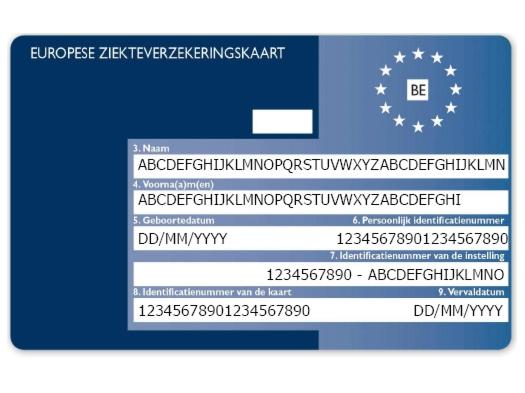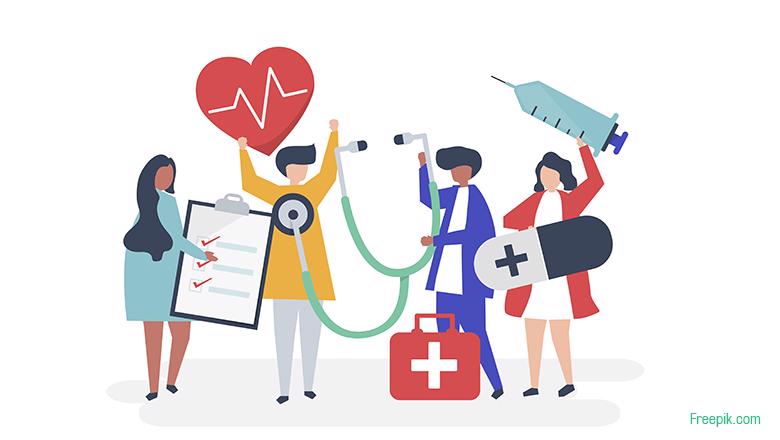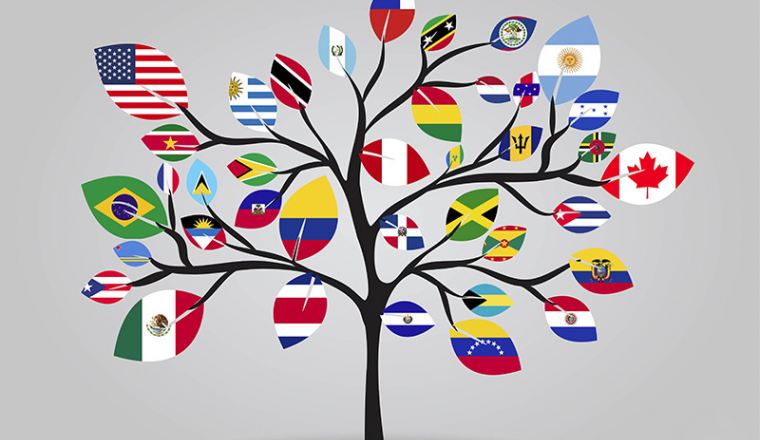
Leaves of absence from KI and caring for your health whilst living in Sweden
Hej hej! Today I’m here to talk about two not so pleasant subjects: asking for a leave of absence during your Master’s at KI and dealing with health issues during your stay in Sweden. It ended up being a veeery long post, but with lots of information – feel free to skip whatever section you feel does not apply to you.
Of course it’s not something everyone is thinking about whilst planning to move to Stockholm (although you definitely should), but it could come up during your stay, and maybe it is already one of your concerns, should you have any health conditions you’ve been wondering how to care for when you’re studying abroad. So, let’s first talk about some of the main points about applying for a leave of absence and about my own experience I feel should be shared with prospective students.
Is a leave of absence the same as a deferral of studies?
No. Usually a deferral request happens when you’ve been admitted to begin your studies during a semester you won’t be able to attend, but wish to keep a spot on the program for the next academic year. You can find all about the reasons considered valid for a deferral of the start of your program by clicking here or by contacting admissions@ki.se. This post, however, focuses on applying for a leave of absence.
A leave of absence is an interruption of your on-going studies, after you’ve at least gotten a few course credits completed and wish to come back to continue the program afterwards (like I do). It also has to be requested and discussed with your student counselor. The contact information for all Global Programs’ counselors can be found on this page. It is also important to note that they work under confidentiality rules.
After that, you’ll fill in a form to request “continuing your studies after a leave of absence”. Your request will be approved if there are considered to exist “special grounds” that justify (with certified proof) your request and then you will be able to resume your studies afterwards, with a guaranteed place on the program once the leave is over. You can request a leave for a maximum of two terms, extendable by a new application through the same process. According to Swedish law, “special grounds” may be social, medical or include other special circumstances such as care of children, illness, national service, civil service and student union assignments.
Should there be no “special grounds” considered to exist and your request is denied (for reasons such as research, other studies or work), your leave will be considered to be an “administrative discontinuation”. There is an opportunity to resume your studies, although it’s not guaranteed, because it will depend on the existence of an available place for you on the course.
All these rules, as well as the deadlines for applications and other doubts are better answered and confirmed with your counselor, considering your individual case. This post is meant to try and clarify the process a bit more, but it shouldn’t be taken as a substitute for discussing and analyzing your case with your counselor and program leader. Reach out!

Now, let’s talk a bit about caring for your health while living in Sweden.
EU/EEA students
If you’re a citizen of the European Union, Iceland, Liechtenstein, Norway, Switzerland or the United Kingdom (at least during the transition period after Brexit which will last until the 31st of December 2020), you’re probably familiar with the European Health Insurance Card (EHIC) and hold one to your name, meaning you will be able to access health services just like any Swede and at the same costs. If you are from Finland, Denmark, Norway or Iceland, it’s even easier, as just an ID document will suffice.

However, depending on where you’re from and where you were living prior to moving to Sweden, things may not be so simple. And it gets even trickier for us who study one-year programs (Global Health and Nutrition Science Masters) as we are not entitled to a personnummer (your personal identity number in Sweden). For more information on the personnummer, you can read the post “All about the personnummer and Swedish ID”.
Whilst living in Belgium (for a year before moving to Sweden), by being an EU citizen, just registering in the municipality I lived in was enough to get my EHIC, and thus access medical services easily across the EU. I was very surprised to know that Sweden works differently. Also, I did not know that health insurance should be arranged before coming to Sweden. The post “Health insurance and medical care” from the Study in Sweden website can be truly useful in explaining what you should be mindful of, depending on your country of citizenship and the length of your stay in the country.
According to Swedish law, if you don’t have a personnummer, your EHIC has to be registered to your home country, meaning I couldn’t get one from Sweden. Also, I had moved out of Belgium and was no longer entitled to it there and neither qualified to have one from my country of citizenship, as I was not living there before coming to Sweden. The same happened to colleagues and friends of mine who are also EU citizens but were living, studying or working in other countries (in Europe or abroad) before entering the Master’s. Also, the system can be tricky even if you do have an EHIC, and I’ve heard of EU citizens having to fly back and forth from home for health treatment, medical tests and procedures during their studies.
So, in my case, and also for others in the same situation, I had to arrange private insurance, which is not an ideal situation, but definitely needed, as medical care without it in Sweden can be very, very expensive. Emergency care should always be available though, in spite of having an EHIC or not.
In my experience, a trip to the hospital costed approximately 320 euros, almost 3 times as much as a Swede can legally pay for medical consultations within the course of 12 months (and any consultations exceeding this value during this period become free of charge). And this was just for admission to the first contact with a doctor, which does not count hospitalization, in case you need to stay in for a couple of days or go through procedures. So, you do need insurance to reimburse you and prevent financial hardship.
In my case, I refused to pay as much on the first time and got answers such as “maybe you just have a stomach flu” or “why don’t you google your questions?” from the people at the hospital reception, which was very irresponsible, given that it was more serious than that. However, once I got in, I cannot complain about the care that was given to me, and the professionals were truly great. I’m writing this because it is possible to get really good care in Sweden, but the barriers to access it can be a true burden to some foreigners and, as a prospective student, you should be able to prepare for that.
Non-EU/EEA students
Fee-paying students are insured by KI itself. However, you should be able to note that it works through a reimbursement system and you will firstly have to pay for care out-of-pocket. Also, if you are wondering about hospitalization, read through the 3 last paragraphs of the section above.
There is information about insurance for international students at KI and you can find it by clicking here. Also, there you’ll find the terms and conditions to the insurance provided to non-EU/EEA citizens, and evaluate if this is enough for your specific needs or if you should look for something more comprehensive.

Student Health Center
Karolinska Institutet has its own Student Health center, with two branches, one located in the Solna campus and another in the Flemingsberg campus. All services offered by them are free of charge to all students (including PhDs) and you can find information on how to contact them and their possibilities of assistance on this page. If they are unable to help you with your problem, they’ll give you information on where to go and how to proceed.
Please note that it is focused on study-related issues, and so it’s not fit for all cases, although you can seek their advice if you don’t know what to do.
Seeking medical help in Stockholm
Seeing a specialist doctor in Sweden can take up to weeks/months and if you need to find yourself around the system and are wondering where to go, you should call 1177. This call can be done from anywhere within Sweden. They’ll discuss your condition and should help you find a clinic or hospital that can give you the care you need, if you need this type of help.
Also, it’s always important to know: the emergency number in Sweden is 112.

What can we learn from other countries?
Being a Global Health student definitely gave me some perspective in comparing countries and their health systems and policies. All around the world, Scandinavian countries are regarded as places where access to healthcare is impeccable and functions perfectly. Well, as it is with any other place, they have big flaws and also great achievements and services. But there is something that has always bothered me (and other friends from the big block of “low- and middle-income countries”): Europe is regarded as a gold standard for healthcare and few lessons are learned from those regarded as “underdeveloped”.
While considering “low- and middle-income countries” as a homogeneous set of places with the same struggles that should learn from a so-called “First World”, a lot is missed. Commonly, a big diversity of cultures, politics, history and – of course – public policies that exist amidst these countries (and whole continents!) is neglected. Not everyone reproduces this type of thinking, of course, but it is a problem in Global Health studies.
For instance, in Brazil, we have a very interesting health system in place. Many, many infrastructural and financial problems exist, but also far-reaching and thriving programs that have been inspiring other countries all around the world. With approximately 210 million inhabitants, there have been successful policies in treating extensively and for free HIV and tuberculosis patients and setting one of the most comprehensive national immunization systems in the world, among other examples.
To be able to do this in a country with continental dimensions and a huge number of inhabitants, among other developmental and political issues, there are most certainly interesting lessons to be taught and discussed. There are plenty of other barriers to access, and many depend on where you are in the country, but foreigners would not be denied free treatment in public health institutions just for being foreigners.
I am sure my colleagues from all over “low- and middle-income countries”, unfairly and commonly painted with the same brush, have similar examples to give and contribute to health policy debates. The discussions usually revolve around an Eurocentric set of practices and conceptions, but European systems could definitely benefit from looking at other many existing perspectives too, as equals, instead of from a viewpoint of a historically inherited sense of superiority, that goes by mainly unnoticed.

Communicating your struggles in a new environment
When you’re new to a country, meeting new people and establishing new relations, it can often be hard to communicate your struggles to the people around you. But, after a while, you’ll realize that everyone is struggling with something, sometimes similar problems, sometimes not, and the same feeling of loneliness of being an expat. My advice is: communicate. Seek help with friends and family at home, and if needed professionals too, but talk to your colleagues and be there for them too, this is one of the main lessons for an international student, along with knowing you do not have to go through the problems you’re facing alone, whatever they may be.

How can KI help you?
Apart from the Student Health Center, and I should stress again that it is focused on study-related issues, I’ve felt like professors and the course leaders were usually very open to understanding students’ struggles. My program leader and the student counselor were amazing in helping me with my leave and request to come back in a year. One thing I truly admire about Sweden is the respect and understanding towards people’s health and limits. I was told by my program leader to always prioritize my health and I’m very grateful for the help from both her and the study counselor, which allowed me to be able to get some time to regain my strengths and continue my studies afterwards.
It’s not the end of the world to leave for a while
I heard some very precious advice during this whole process of deciding to ask for a leave, but I guess one of the most important ones was: “If you’re not healthy, in the end there’ll be no Master’s degree, no research, you won’t be able to enjoy this experience (including the parts where you’re not studying) and might be not be able to finish it at all”.
In this very productivist and competitive world we live in, if one does not learn how to prioritize themselves and their well-being (and this includes not just medical and psychological health, but enjoying the environment and people around you, doing activities that will bring you happiness and ease and respecting your own processes and time) they may even achieve what they’ve been planning in spite of their own needs, but at what cost? You don’t have to suffer and sacrifice your contentment to earn the achievements you’ve set your mind to.
Most importantly: you are also allowed to change paths if you want. Allow yourself to think and re-think about your situation, what you learned from it and where you might want to go next. And if you feel like coming back to your studies (like I plan to do) remember: you can come back stronger and live a much better experience.


0 comments